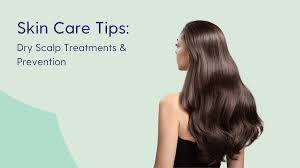
The Best Ingredients for a Dry Scalp
Dealing with a dry scalp can be frustrating and uncomfortable, as a dry scalp can cause itching, flaking, and irritation. Fortunately, certain ingredients in hair care products can effectively address these issues related to a flaky or dry scalp and provide relief. In this blog, I share some of the best ingredients for dealing with a dry scalp, as well as explain what causes a dry scalp, how to prevent it, and how to choose the best products for your skin and hair type.
To make sure you know your skin type, take our free quiz here! It’s the best way to find products that really work for your skin!
Glycerin, sulfur, salicylic acid, ceramides, oat kernal extract, tea tree oil, and argan oil are some of the best ingredients for a dry scalp.
Look for hair products that lock in moisture and reduce inflammation to treat a dry scalp.
Avoid very hot water and wash your hair less frequently to help prevent dryness and flaking.
Skin types and the scalp
The scalp, surprising as this may seem, is the same skin type as your facial skin. Products that cause breakouts, dryness, or any other issue on your face could cause similar issues when used on your scalp. That’s why it’s so important to only use hair and scalp products that are right for your Baumann Skin Type.
Of course, skin types are different than hair types – but hair types are themselves distinct from the scalps they grow out of.
This means that ideally, when you buy a hair/scalp product, it should be safe for your Baumann Skin Type, and for your particular hair type. With all of that said, let’s start to analyze some of the most common/best scalp care ingredients on the market.
Glycerin
Glycerin is a humectant, which means it draws moisture from deep within the skin onto the surface. This property makes it an excellent ingredient for treating dry scalp, as it helps to hydrate and maintain moisture levels. By keeping the scalp moisturized, glycerin can reduce flakiness and itching, providing a soothing effect on the scalp.
One great hair care product that contains glycerin is the CLnMD 2-in-1 Gentle Wash & Shampoo . This gentle formula cleanses both the hair and scalp without stripping away essential moisture, making it perfect for those with a dry scalp.
Sulfur
Sulfur is a well-known ingredient for its keratolytic properties, meaning it helps to shed dead skin cells from the scalp. This action can prevent the buildup of flaky skin and reduce dandruff. Additionally, sulfur has antimicrobial properties, which can help to address any underlying bacterial or fungal issues that may contribute to a dry scalp. Products like Derma Made Medi Wash incorporate sulfur to effectively cleanse and treat flaky, dry scalp.
Salicylic Acid
Salicylic acid is an ingredient that works wonders for under-exfoliated scalps, but it’s not the best for extremely dry skin types. It is a beta hydroxy acid (BHA) that helps to exfoliate the skin, removing dead cells and preventing dandruff. Its anti-inflammatory properties also soothe the scalp, reducing irritation and redness.
Ceramides
Ceramides are lipids that are naturally found in the skin and play a crucial role in maintaining the skin barrier. They partially form the skin barrier’s core structure, and aid it in locking in moisture and protecting the scalp from external irritants. When the scalp’s natural ceramide levels are low, it can become dry and prone to irritation.
You can find ceramides in many hair care products like Bioderma Sebium Hydra , which helps to restore and maintain a dry scalp’s natural moisture barrier, providing long-lasting hydration and protection.
Oat Kernal Extract
Avena sativa, or oat kernel extract is well-known for its soothing and anti-inflammatory properties. It helps to calm an irritated or dry scalp and provides gentle moisture. This ingredient is particularly beneficial for those with sensitive skin, as it can reduce itching and redness caused by dry scalp without causing further irritation.
The HairSanity Anti-Itch Shampoo Step 1 & Anti-Dandruff Conditioner Step 2 utilizes oat kernel extract to provide relief from dryness and itching, promoting a healthier scalp. This two-step hair system also contains glycerin and salicylic acid to enhance dry scalp hydration and reduce redness and irritation.
Tea Tree Oil
Tea tree oil has strong antiseptic and antifungal properties, helping to cleanse the scalp and reduce the presence of microorganisms that can cause dryness and irritation. Additionally, tea tree oil can help to unclog hair follicles and soothe a dry scalp.
Argan Oil
Argan oil is a deeply hydrating oil that is rich in essential fatty acids and vitamin E. It helps to nourish dry scalps and provide lasting moisture. Argan oil also has anti-inflammatory properties, making it an excellent choice for soothing an irritated scalp. Regular use of argan oil can improve scalp health, reduce dryness, and leave your hair feeling soft and manageable. Here’s my personal favorite argan oil product:
What Causes a Dry Scalp?
A dry scalp can be caused by various factors, including environmental conditions, such as cold weather and low humidity, which can strip moisture from the skin. Frequent use of harsh hair care products, excessive washing, and the use of very hot water in the shower can also contribute to a dry scalp. Additionally, certain skin conditions, such as eczema and psoriasis, can cause dryness and irritation.
Understanding the underlying cause of your dry scalp can help you choose the most effective treatment. If you’re unsure, consult with a dermatologist for professional recommendations tailored to your skin’s specific needs.
How to Prevent a Dry Scalp
To help prevent a dry scalp, use gentle, hydrating shampoos and conditioners with ingredients like glycerin, ceramides, and oat kernel extract to nourish and hydrate your scalp. Avoid excessively hot water and limit the use of heat styling tools to prevent stripping away natural oils. You can also limit washing your hair to every other day or every three days to help maintain your scalp’s natural oils. Eating a diet rich in omega-3 fatty acids can also help to support scalp and overall skin health.
Bottom Line: Choosing the Right Hair Products
Choosing the right hair products is crucial for maintaining a healthy scalp and preventing dryness. Look for shampoos and conditioners formulated with moisturizing ingredients like glycerin, ceramides, and oat kernel extract, and avoid products with harsh sulfates and drying alcohols that can strip natural oils from your scalp.
Consistent use of these products can make a significant difference in scalp health, reducing dryness, itching, and flaking. Understanding your unique skin type is essential for selecting the best products for your needs. Take the Baumann Skin Type quiz to receive personalized recommendations for your skincare and hair care regimen, ensuring optimal results and a healthier scalp.


